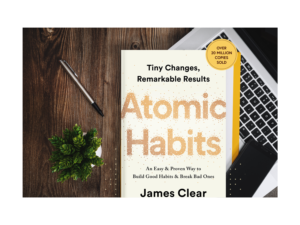Discover the importance of emotional intelligence and how it can enhance your relationships, career, and personal well-being. Learn practical strategies to develop emotional intelligence and thrive.
Table of Contents
Introduction:
Have you ever been in a situation where you said something in the heat of the moment and regretted it later? Yeah, me too. That’s where emotional intelligence (EI) comes in. Emotional intelligence is all about understanding and managing your emotions—and the emotions of others—so that you can respond more thoughtfully instead of reacting impulsively.
Research has shown that emotional intelligence is just as important, if not more so, than traditional intelligence (IQ) when it comes to success in both personal and professional life. So, let’s dive into what emotional intelligence really is, why it matters, and how we can all get better at it.
1. What Is Emotional Intelligence?
Emotional intelligence is the ability to recognize, understand, manage, and influence emotions—both your own and those of others. It’s like being able to navigate the emotional landscape of life in a way that benefits you and the people around you.
- Key Components of Emotional Intelligence: There are five key components to emotional intelligence, according to Daniel Goleman, who popularized the concept. These include:
- Self-awareness: Knowing your own emotions and how they affect your behavior.
- Self-regulation: Being able to control or redirect your emotions, especially in stressful situations.
- Motivation: Having the drive to achieve goals and persist in the face of setbacks.
- Empathy: Understanding and sharing the feelings of others.
- Social skills: Building and maintaining healthy relationships.
- Personal Experience: I used to think being smart was all that mattered. I mean, who wouldn’t want to ace every test or always be the one with the right answer? But it turns out, being smart without understanding emotions can lead to some pretty messy situations. I’ve definitely had moments where I let my frustration take over during a heated discussion, and it didn’t end well. But once I started focusing on emotional intelligence, I realized I could handle these situations better—and I felt better too.
- Mistake I Made: I’ll admit, I used to be really bad at emotional regulation. If I was upset, everyone knew it. But as I’ve gotten older (and hopefully wiser), I’ve learned that taking a step back, breathing, and thinking before reacting can change everything. It’s like I’m speaking a different language now—one that doesn’t involve as many arguments or awkward apologies.
2. Why Emotional Intelligence is Important
So, why does emotional intelligence matter so much? Well, let me tell you—it affects just about every area of your life. From relationships to work, understanding emotions can make or break your success.
- Better Relationships: When you have high emotional intelligence, you’re able to communicate more effectively, resolve conflicts with less drama, and truly connect with the people around you. Trust me, your friendships, family dynamics, and even romantic relationships will improve when you start paying attention to how you (and others) feel. I used to struggle with empathy—I just couldn’t understand why people got upset over things that didn’t bother me. But once I made an effort to see things from their perspective, my relationships grew deeper and more meaningful.
- Professional Success: Emotional intelligence is a game-changer in the workplace. People with high EI are better leaders, more collaborative team members, and generally more adaptable to change. When I started paying more attention to my emotional responses at work, I found myself getting along better with colleagues, even in stressful situations. Plus, being able to handle criticism without falling apart? Priceless.
- Mental Health Benefits: Developing emotional intelligence can also have a huge impact on your mental health. When you’re in tune with your emotions and know how to manage them, you’re less likely to feel overwhelmed or anxious. I used to bottle up my feelings until they exploded in unhealthy ways. Now, I’m more in tune with what I’m feeling and why, which makes it easier to manage stress before it spirals out of control.
3. How to Develop Emotional Intelligence
The good news is that emotional intelligence isn’t something you’re just born with—it’s a skill you can develop over time. So, if you’re like me and didn’t naturally ace this emotional stuff, don’t worry! Here are a few strategies I’ve found helpful in boosting my own emotional intelligence:
- Practice Self-Awareness: This is the foundation of emotional intelligence. Pay attention to your own emotions—what triggers them, how they influence your thoughts and actions, and how they make you feel physically. I started keeping a journal to track my moods and patterns, and it’s been a real eye-opener. Sometimes just naming the emotion I’m feeling (“Oh, I’m anxious”) makes it easier to deal with.
- Learn to Self-Regulate: Once you’re aware of your emotions, the next step is learning how to control them. For me, this meant taking a pause before reacting—especially in stressful situations. Deep breathing exercises and mindfulness meditation helped me a lot here. It’s all about slowing down and asking yourself, “What’s the best way to respond to this?”
- Develop Empathy: Empathy is a key part of emotional intelligence, but it doesn’t always come naturally. I found that actively listening to others, without interrupting or jumping to conclusions, was a great way to build empathy. I also started imagining myself in the other person’s shoes, which helped me understand their feelings better.
- Improve Social Skills: Whether it’s networking, resolving conflicts, or simply building connections, having good social skills is essential. I used to be a little shy in social settings, but working on my emotional intelligence helped me become more confident in interacting with others. Now, I focus on being present, listening, and communicating clearly, and it’s made a world of difference.
4. The Impact of Emotional Intelligence on Leadership
If you’re in any kind of leadership role—or aspire to be—emotional intelligence is an absolute must-have. In fact, studies show that emotionally intelligent leaders are more effective at motivating their teams, resolving conflicts, and fostering a positive work environment.
- Leading with Empathy: One of the most important aspects of emotional intelligence in leadership is empathy. Being able to understand and respond to your team members’ emotions can build trust and strengthen relationships. I’ve worked under leaders who lacked empathy, and let me tell you—it made for a stressful and unproductive environment. On the other hand, when I’ve had leaders who truly listened and cared about how we were feeling, the whole team thrived.
- Motivating and Inspiring: Emotionally intelligent leaders are also great at motivating and inspiring their teams. They know how to tap into what drives each individual and can tailor their leadership style accordingly. This was something I had to work on when I first stepped into a leadership role. Once I started paying attention to my team’s emotional needs, I was able to create a more positive and motivating work atmosphere.
- Conflict Resolution: Every team has its conflicts, but emotionally intelligent leaders are better equipped to handle them. By staying calm, listening to both sides, and finding solutions that work for everyone, they can resolve issues before they escalate. I’ve definitely had my fair share of conflicts to resolve, and let’s just say, I learned a lot about the importance of emotional regulation in those moments!
5. Emotional Intelligence in Relationships
I can’t stress enough how important emotional intelligence is in relationships. Whether it’s with a partner, friend, or family member, being emotionally intelligent can help you navigate the ups and downs of human connection.
- Communication is Key: Emotional intelligence helps you communicate more effectively. Instead of letting your emotions drive your responses, you can take a step back, assess the situation, and respond thoughtfully. In my own relationships, I’ve noticed that when I stay calm and try to really listen to the other person, conversations go a lot smoother—even if we don’t always agree.
- Managing Conflicts: Disagreements are bound to happen, but emotional intelligence helps you manage them in a way that strengthens the relationship rather than damaging it. I used to avoid conflict at all costs, but now I’ve learned that addressing issues head-on, with empathy and understanding, leads to better outcomes.
- Building Deeper Connections: When you understand your own emotions and those of others, it’s easier to build deeper, more meaningful connections. I’ve found that by being open and vulnerable about my feelings, the people in my life feel more comfortable doing the same. It creates a space where we can all grow together.
Conclusion
Emotional intelligence is a game-changer, no matter what stage of life you’re in. Whether you’re trying to build stronger relationships, become a better leader, or simply understand yourself on a deeper level, developing emotional intelligence is key. It’s not always easy—trust me, I’ve had my share of emotional missteps—but it’s worth the effort.
So, how will you start improving your emotional intelligence today? I’d love to hear your thoughts or tips in the comments. Let’s keep growing together!




